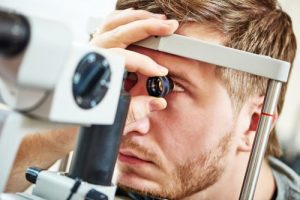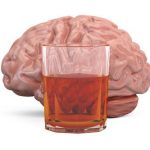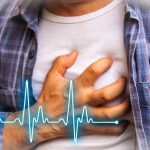 It’s time for our weekly health round up. This week, we focus on some important articles on eye health, memory, muscle pain, and heart.
It’s time for our weekly health round up. This week, we focus on some important articles on eye health, memory, muscle pain, and heart.
Explore the difference between glaucoma, cataracts, and panuveitis. We also have an important article on the effects of alcohol on memory.
Advertisement
Other than that, take a look at how you can prevent hip flexor strain with some simple exercises and an important study stating that the risk of heart problem is higher in the morning.
Glaucoma vs. Cataract: Difference in Causes, Symptoms, and Treatment
While they are both degenerative eye diseases, glaucoma and cataract are different. Here we provide you with an overview of glaucoma vs. cataract.
Well over two million Americans currently suffer from glaucoma, and by the age of 80, over half of those living in the U.S experience cataract. What is the difference between glaucoma and cataracts? Glaucoma is an eye disorder that damages the optic nerve that carries information from the eye to the brain. In most cases, it relates to high pressure inside the eye. This is called “ocular hypertension.” It is important to know that there are some situations where intraocular pressure is normal, yet a person still gets glaucoma. Continue reading…
 Panuveitis (Diffuse Uveitis): Causes, Symptoms, Diagnosis, and Treatment
Panuveitis (Diffuse Uveitis): Causes, Symptoms, Diagnosis, and Treatment
Panuveitis or diffuse uveitis is part of a group of diseases that affect the part of the eye called the uvea. Sadly, it can lead to vision loss.
Uveitis that impacts all regions of the uvea, including the iris, ciliary body, and choroid is the best panuveitis definition. Panuveitis is actually one of four types of uveitis. There is anterior uveitis, intermediate uveitis, and posterior uveitis. The type is dictated by which part of the uvea is involved. With panuveitis, surrounding eye structures including the lens, optic nerve, and retina can be affected.
Uveitis essentially means someone has inflammation of the uvea. The uvea is a pigmented layer that encloses and protects the eyeball. It is made up of thick, fibrous tissue. Continue reading…
 Alcohol And Memory Loss: How Does Alcohol Impact Brain Health And Memory Loss?
Alcohol And Memory Loss: How Does Alcohol Impact Brain Health And Memory Loss?
Alcohol and memory loss are very closely related to one another. People who consume excessive amounts of alcohol on a regular basis are more likely than those who only drink moderately to develop early-onset dementia and other cognitive dysfunctions as they get older.
A French study conducted earlier this year showed a strong correlation between people who regularly consume more than the standard amount of alcohol daily (approximately for to five drinks for men and three drinks for women) and the increased risk of permanent brain damage. Continued excessive alcohol consumption can also shave off more than 20 years of a person’s natural lifespan. Continue reading…
 Hip Flexor Strain Prevention and Exercises
Hip Flexor Strain Prevention and Exercises
Hip flexor strain is a common medical condition in older adults and athletes. The condition occurs when there is a tear or stretches in one of the muscles in the hip flexors, which allow the hip joint to remain flexible and stable. The hip flexor is made up of several muscles in the hip, upper groin, and pelvis. The condition leads to pain in the hip and upper groin. Hip flexor strain can be caused by any number of minor to major injuries.
Advertisement
Keep reading to find out how to prevent hip flexor strain and which exercises are the best to relieve symptoms. Continue reading…
 Why Is Your Heart Attack Risk Higher in the Morning?
Why Is Your Heart Attack Risk Higher in the Morning?
Cardiovascular disease is actually an umbrella term that refers to a number of medical conditions which cause narrowing or blockages in the blood vessels leading to your heart. Patients with cardiovascular disease have an increased risk of heart attack.
A new study has discovered that these patients also suffer from a higher risk of heart attack early in the morning. This is due to our body’s natural clock. The body’s clock becomes adjusted through external cues, such as lightness during the day and darkness at night, as well as our own daily functions, such as sleeping and eating. Contiue reading…
